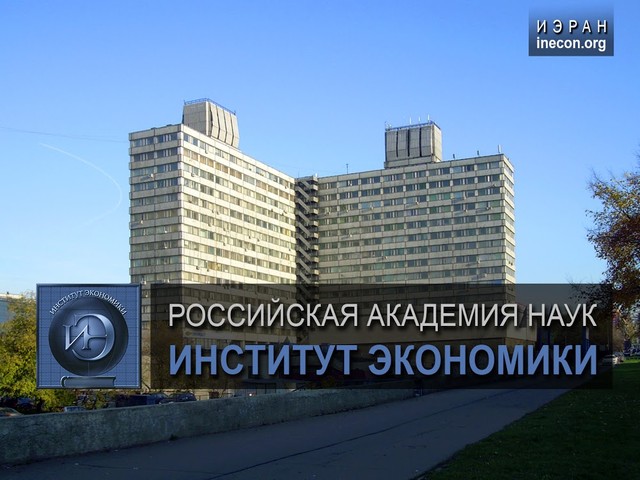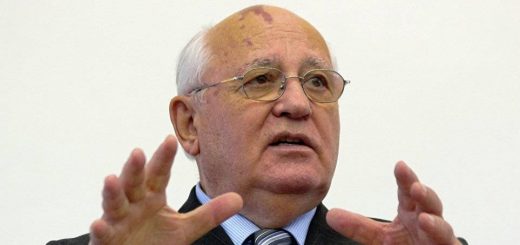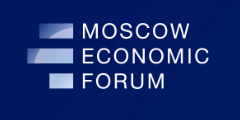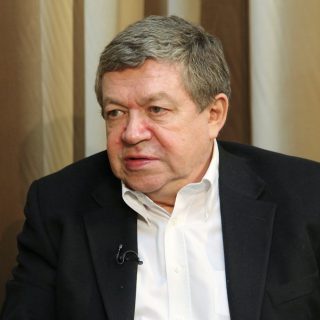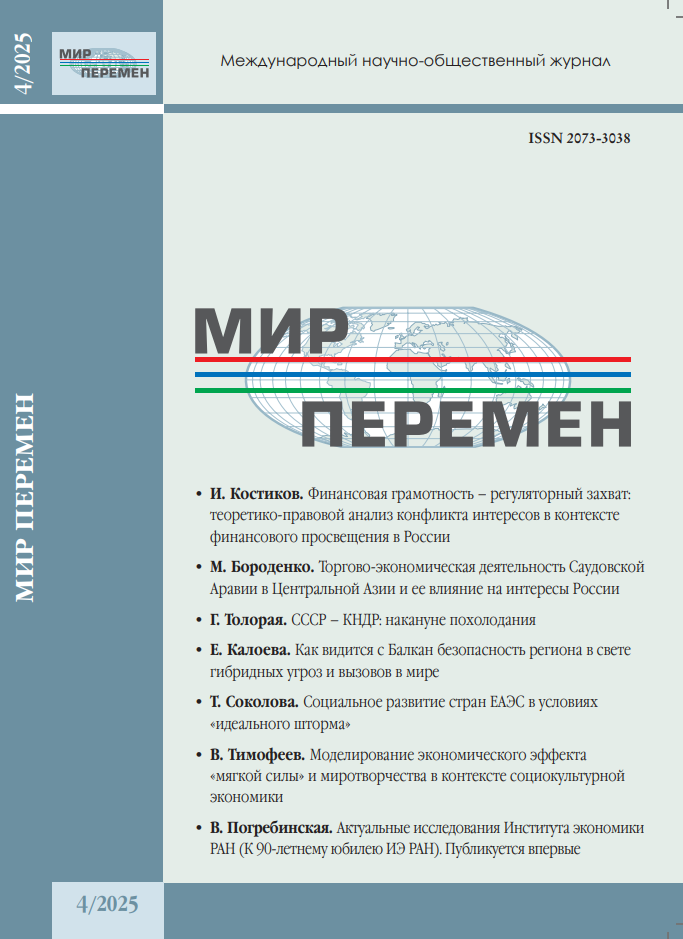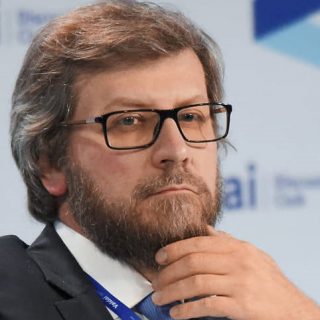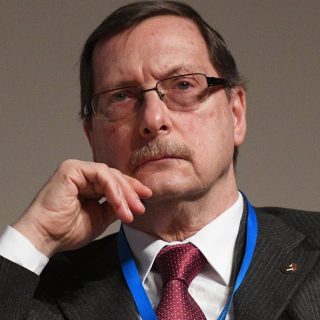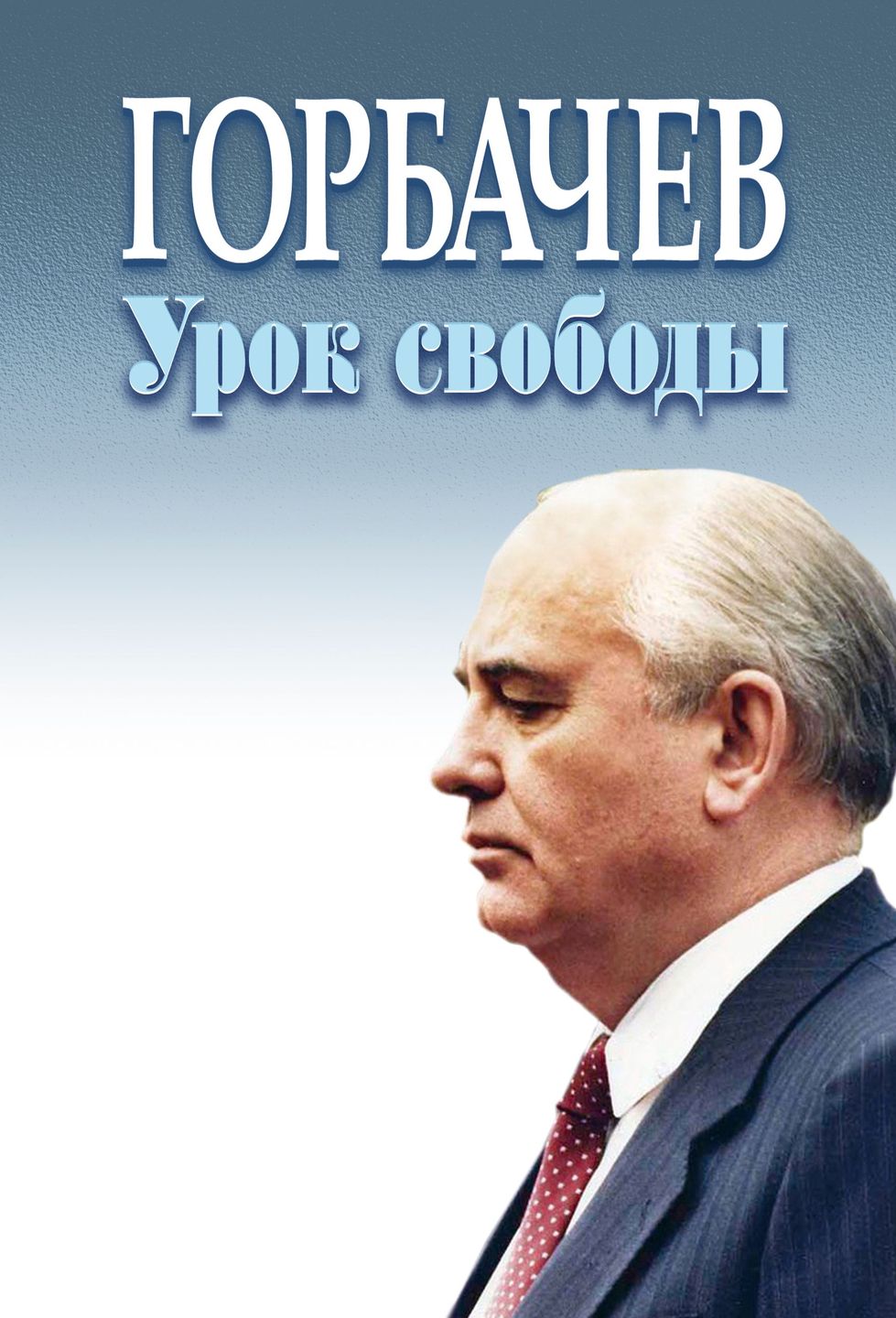Мир перемен. 2025. № 1
Мир перемен. 2025. № 1.
- содержание резюме contents summary
СОДЕРЖАНИЕ
40 лет перестройке
А. Журбин. Михаил Горбачев, или Колумб
Непонятый пророк
М. Горбачев. 20 лет с начала перестройки в СССР (Выступление на встрече с представителями политических и общественных кругов США в Вашингтоне, 21 октября 2005 г.)
М. Горбачев. Ретроспектива 1989-го: уроки прошлого – взгляд в будущее (Выступление в Университете Джорджа Мэйсона. Вашингтон, 24 марта 2009 г.)
М. Горбачев. О перестройке сегодня (март, 2015)
Дилеммы глобализации
Ю. Князев. Современные вызовы для международного разделения труда политики
К. Роуз. Ресурсная политика как средство устойчивого экономического развития России
М. Шерстнев. Особенности долларизации в странах СНГ
В. Чмырева. Российский «пояс соседства» в фокусе американо-турецкого партнерства: новые реалии и интересы России
И. Медведев. Специфика цифровизации интеграции во взаимодействии России со странами ЕАЭС – ШОС – БРИКС
Н. Степанов. 30 лет Расширенной Туманганской инициативы (РТИ): итоги и перспективы
Демография: традиции и индустриализация (Московский экономический форум МЭФ-2025)
Экономика
В. Кошелев. Необходимость институциональной реформы регулирования финансового сектора и денежно-кредитной политики
Политика
И. Смотрицкая, С. Черных. Публичное управление и инклюзивные институты
В. Тимофеев. Либеральный международный порядок: сила, нормы и легитимность
РЕЗЮМЕ
А. Журбин. Михаил Горбачев, или Колумб
Фрагмент из книги «Моя музыкальная жизнь». Изд-во «Зебра Е», 2012.
Александр Борисович Журбин – композитор, заслуженный деятель искусств РФ, член Союза композиторов России, Союза кинематографистов РФ и Союза писателей Российской Федерации (г. Москва).
М. Горбачев. 20 лет с начала перестройки в СССР
Выступление на встрече с представителями политических и общественных кругов США в Вашингтоне, 21 октября 2005 г.
Три события в российской истории в XX в. имели огромное значение для судеб самой России и всего остального мира: революция 1917 г., победа над фашизмом в Великой Отечественной войне и перестройка в последней четверти XX в.
Ключевые слова: перестройка, новое мышление, глобальные вызовы, новые центры силы.
М. Горбачев. Ретроспектива 1989-го: уроки прошлого - взгляд в будущее
Выступление в Университете Джорджа Мэйсона. Вашингтон, 24 марта 2009 г.
За двадцать лет, прошедших с 1989 г., в результате прекращения холодной войны и конфронтации мир сильно продвинулся в глобальную эпоху. Это требует от нас анализа всего происходящего с учетом глобальных вызовов. С другой стороны, двадцать лет по историческим меркам – небольшой срок.
Ключевые слова: перестройка, холодная война, глобальные изменения, архитектура мировой безопасности, бедность и отставание, экологические вызовы.
М. Горбачев. О перестройке сегодня. Март, 2015 г.
Тридцать лет назад в СССР начались перемены, изменившие облик страны и мира. История отвела перестройке небольшой по ее меркам срок – меньше семи лет. Но споры о ней не утихают. Разобраться в том, что и почему произошло в те годы, понять перестройку – это, я уверен, важно и необходимо сейчас.
Ключевые слова: перестройка, холодная война, распад СССР, Беловежские соглашения, новое политическое мышление, гонка вооружений, права человека.
Ю. Князев. Современные вызовы для международного разделения труда
УДК: 339.
EDN: DLJNPA
DOI: 10.51905/2073-3038_2025_1_30
Международное разделение труда (МРТ) до недавнего времени рассматривалось как безусловное благо для всех государств. Писавшие об этом авторы подчеркивали, что МРТ приносит выгоды всем участникам, так как позволяет производителям экономить на издержках при обмене товарами между странами из-за разных условий для создания продукции, главным образом различной производительности труда. Даже ввоз продуктов, которых вообще нет в стране-импортере (например, не произрастающих там овощей и фруктов), тоже осуществляется вследствие межстранового разделения труда, сложившегося по естественным причинам. Однако современные вызовы, с которыми столкнулись страны, оказавшиеся объектами незаконных торгово-экономических и валютно-финансовых санкций, заставляют усомниться в бесспорности этой точки зрения.
Ключевые слова: международное разделение труда, причины и преимущества, безусловное благо или потенциальная угроза, современные вызовы, экономическая глобализация, тенденция деглобализации, экономический и технологический суверенитет.
Юрий Константинович Князев – доктор экономических наук, профессор, главный научный сотрудник Института экономики РАН (г. Москва).
В. Кошелев. Необходимость институциональной реформы регулирования финансового сектора и денежно-кредитной политики
УДК: 336.02
EDN: DVHWVK
DOI: 10.51905/2073-3038_2025_1_43
Финансовый сектор обладает системообразующим значением для любой национальной экономики, обеспечивая перераспределение капитала, поддержку денежного обращения и общий экономический рост. В России, как и во многих странах, от эффективности финансового регулирования и денежно-кредитной политики (ДКП) во многом зависят темпы развития, уровень инфляции и благосостояние населения. В последние годы российская финансовая система столкнулась с рядом вызовов, показавших необходимость фундаментальных институциональных реформ, предполагающих перераспределение функций и уход от чрезмерной монополии Центрального банка на регулирование.
Ключевые слова: финансовый сектор, институциональная реформа, денежно-кредитная политика, инфляция, санкции, ЦБ РФ, мегарегулятор, конкуренция, структурные реформы, финансовая грамотность.
Владимир Алексеевич Кошелев – кандидат экономических наук, первый заместитель председателя комитета Государственной Думы VIII созыва по строительству и жилищно-коммунальному хозяйству (г. Москва).
К. Роуз. Ресурсная политика как средство устойчивого экономического развития России
УДК: 330, 341.1, 330.47
EDN: FXYVWN
DOI: 10.51905/2073-3038_2025_1_62
В статье рассматриваются проблемы формирования новой ресурсной политики России в условиях перехода мировой экономики к Шестому технологическому укладу, характеризующемуся углубляющейся турбулентностью в мировой экономике, а также рядом вызовов для национального развития России – как внешнего, так и внутреннего характера. Рассмотрены также основные концепции пространственного развития и укрепления транспортной связанности, в том числе теория территориально-производственных комплексов (ТПК) М. Бандмана и эволюционный подход Й. Сиозавы и возможность их применения на современном этапе развития российской экономики.
Автором предлагаются два основных подхода к выработке ресурсной политики России – технологический и органический, а также рассмотрены основные возможности и вызовы, связанные с их реализацией на практике.
Ключевые слова: ресурсная политика, экономическое развитие, энергоресурсы, цепочки поставок, территориально-производственные комплексы, общественная ценность, пространственное развитие, экономическая информатика.
Кристиан Брунович Роуз – ведущий инженер Института экономики и организации промышленного производства (ИЭОПП) СО РАН (г. Новосибирск)
М. Шерстнев. Особенности долларизации в странах СНГ
УДК: 336.743.4.
EDN: GACWFB
DOI: 10.51905/2073-3038_2025_1_86
Рыночная трансформация бывших социалистических стран, сопровождавшаяся открытием их внешнему миру, в числе различных экономических эффектов породила феномен долларизации, то есть использование резервных валют – прежде всего доллара США – во внутренних хозяйственных процессах для выполнения различных функций денег. В данной статье предпринята попытка осмыслить специфику феномена долларизации в странах СНГ после завершения начального этапа преобразований и выхода из трансформационного спада в свете современных теоретико-методологических разработок и накопленного практического опыта других стран и регионов, прежде всего стран Латинской Америки.
Проведенное исследование показало, что роль резервных валют и в первые десятилетия XXI в. оставалась весомой для этой группы стран относительно масштабов их экономики. На материалах Российской Федерации дополнительно показано, что рост уровня долларизации обусловлен усилением макроэкономической нестабильности, прежде всего повышением уровня внутренней инфляции, которая идет вместе со снижением курса национальной валюты и повышением курсовой волатильности. Опыт стран СНГ подтверждает, что для снижения уровня долларизации экономики ключевую роль играет макроэкономическая стабильность и стабильность ожиданий хозяйственных агентов. Специфика дедолларизации в РФ в начале 2020-х годов обусловлена сочетанием уникальных внешних факторов.
Ключевые слова: долларизация, функции денег, макроэкономическая нестабильность, СНГ.
Михаил Анатольевич Шерстнев – кандидат экономических наук, доцент Института экономики и управления Самарского университета (г. Самара).
В. Чмырева. Российский «пояс соседства» в фокусе американо-турецкого партнерства: новые реалии и интересы России
УДК: 327.
EDN: HIFWOU
DOI: 10.51905/2073-3038_2025_1_99
Стремительно меняющиеся экономические и геополитические реалии взаимодействия государств, слом устоявшихся партнерств и трансформация традиционных политико-экономических связей заставляют переосмыслить основополагающие риски Российской Федерации во внешнеполитической и экономической сферах и вынуждают к поиску новых инструментов и механизмов реализации государственных интересов для достижения стратегической цели России: утверждения статуса экономически независимого и политически суверенного государства – центра притяжения для стран российского «пояса соседства». Стремление РФ к роли интегратора на большом евразийском (постсоветском) пространстве сталкивается с конкурентными интересами доминантных акторов мировой политики (США) и региональных держав (Турция), прилагающих «немалые усилия для реализации в данном регионе мира собственных геополитических и геоэкономических интересов». В данном контексте в фокусе нашего внимания – центральноазиатский «пояс соседства» РФ.
Ключевые слова: российский «пояс соседства», евразийская интеграция, Большое Евразийское партнерство, Россия, США, Турция, государства Центральной Азии, Монголия, американо-турецкое партнерство.
Вера Александровна Чмырева – кандидат исторических наук, старший научный сотрудник Центра постсоветских исследований ИЭ РАН (г. Москва).
И. Медведев. Специфика цифровизации интеграции во взаимодействии России со странами ЕАЭС – ШОС – БРИКС
УДК: 339.9.
EDN: JZEXID
DOI: 10.51905/2073-3038_2025_1_115
Развитие внешнеторгового и инвестиционного взаимодействия России с новыми торговыми партнерами в условиях продолжающейся перестройки торговых потоков актуализирует изучение этого процесса в условиях цифровой
трансформации экономики РФ. В статье исследуются перспективы экономического сопряжения интеграционных проектов ЕАЭС, ШОС и БРИКС.
Основной акцент делается на анализе внешнеторгового взаимодействия и цифровизации интеграции, которая выражена в использовании цифровых платформ, развитии цифровой инфраструктуры, торговли цифровыми и высокотехнологичными товарами, относящимися к товарам индустрии 4.0. Представлен анализ внешней торговли такими товарами внутри стран ЕАЭС, а также с участниками ШОС, БРИКС+, обозначена роль и влияние цифровизации интегра
ции на возможное сопряжение рассматриваемых проектов.
Ключевые слова: ЕАЭС, БРИКС, ШОС, цифровизация интеграции, сопряжение.
Илья Витальевич Медведев – научный сотрудник ИЭ РАН, Центр постсоветских исследований (г. Москва).
Н. Степанов. 30 лет Расширенной Туманганской инициативы (РТИ): итоги и перспективы
УДК: 339.9
EDN: NOWWMD
DOI: 10.51905/2073-3038_2025_1_133
В статье рассматривается развитие региона Туманган в современных геополитических условиях и влияние на него Расширенной Туманганской Инициативы (РТИ). Проанализированы географическое положение, природно-ресурсный потенциал и инфраструктурные ограничения региона. Особое внимание уделено проблемам развития судоходства по реке Туманной, включая недостаточную глубину фарватера и ограничения, связанные с существующим железнодорожным мостом. Рассмотрены экономические перспективы и стратегическое значение региона, а также позиции России, Китая и КНДР по вопросам его развития. Отмечена необходимость учета экологических аспектов при реализации проектов в регионе. Сделан вывод о сложности и многогранности вопросов развития Тумангана, требующих тщательной дипломатической работы и комплексного подхода.
Ключевые слова: Туманган, Расширенная Туманганская Инициатива, РТИ, река Туманная, международное сотрудничество, Северо-Восточная Азия, судоходство, инфраструктура, геополитика, экономическое развитие, экология.
Никита Сергеевич Степанов – кандидат экономических наук, старший научный сотрудник Центра институтов социально-экономического развития Института экономики РАН (г. Москва).
Демография: традиции и индустриализация
Так звучала главная тема Московского экономического форума нынешнего года (МЭФ-2025), проходившего в Москве 1 и 2 апреля. Традиционные блоки тем – экономическое развитие и международные отношения. В рамках МЭФ-2025 отечественные и зарубежные эксперты – экономисты, бизнесмены и ученые – обсуждали лучшие стратегии развития России.
Среди обсуждаемых тем были:
Какая идеология нужна России для укрепления национального единства и развития?
Как развивать отечественное производство?
Как развивать сельское хозяйство и укреплять фермерство?
Как выстраивать выгодное партнерство в рамках БРИКС?
Какие проекты развивать в России и экспортировать в страны мира?
Мысли, высказанные некоторыми участниками МЭФ-2025, предлагаем вниманию читателей.
Ключевые слова: Московский экономический форум, МЭФ-2025, демография, традиции, индустриализация, укрепление национально го единства и развития, выгодное партнерство, БРИКС, импортозамещение, научно-исследовательские и опытно-конструкторские работы (НИОКР).
И. Смотрицкая, С. Черных. Публичное управление и инклюзивные институты
УДК: 338.2.
EDN: SGSDLJ
DOI: 10.51905/2073-3038_2025_1_158
В статье через призму основных направлений исследований лауреатов Нобелевской премии по экономике – 2024 Д. Аджемоглу, С. Джонсона и Дж. Робинсона, связанных с анализом страновых различий в уровне благосостояния
и доказательством позитивной роли общественных институтов для социально-экономического развития, показана необходимость становления в нашей стране инклюзивных институтов, развития публичной парадигмы
управления и на этой основе поиска баланса интересов государства и общества.
Материал подготовлен в продолжение современных научных дискуссий о теоретических основах и методах исследования в области трансформации государственного и муниципального управления с учетом стратегических вызовов и долгосрочных перспектив.
Ключевые слова: публичное управление, инклюзивные и экстрактивные институты, баланс интересов государства и общества, коллективное управление, экономическое благосостояние, инновации, цифровизация.
Ирина Ивановна Смотрицкая – доктор экономических наук, главный научный сотрудник, руководитель Центра исследований проблем государственного управления Института экономики РАН (г. Москва).
Сергей Иннокентьевич Черных – доктор экономических наук, профессор, главный научный сотрудник Центра исследований проблем государственного управления Института экономики РАН (г. Москва).
В. Тимофеев. Либеральный международный порядок: сила, нормы и легитимность
УДК: 327.7, 327.8.
EDN: SPZWBS
DOI: 10.51905/2073-3038_2025_1_172
В статье анализируется существующий мировой порядок в контексте норм, силы и легитимности. Целью исследования является определение оптимальной теоретической модели либерального международного порядка (ЛМП). В рамках деонтологического подхода сравнивается существующий ЛМП с нормативными основами либерализма и делается вывод, что либеральный международный порядок должен поддерживать инклюзивные институты и обеспечивать равноправие на глобальном уровне. Сопоставляя мягкую силу и поддержание мира, автор выводит их общий эффект – построение инклюзивных институтов.
Применяя коэффициент ранговой корреляции Спирмена, автор показывает наличие существенной прямой связи между сборами самых кассовых фильмов Marvel и мировым валовым национальным доходом на душу населения. Таким образом, мягкая сила формирует либеральные нормы, хотя и становится инструментом американской гегемонии.
В статье также показывается существование прямой связи между количеством операций по поддержанию мира и промышленным индексом Доу Джонса. Исследователь делает вывод, что миротворчество как баланс инструментов жесткой и мягкой сил, который применяется на легитимной и многосторонней основе, может способствовать стабилизации и институциональному строительству и обеспечивать поддержание либерального международного порядка. В целом мягкая сила и миротворчество являются сопоставимыми инструментами в контексте формирования сильных институтов и продвижения либерального порядка.
Ключевые слова: либерализм, либеральный международный порядок, инклюзивные институты, социокультурная экономика, ООН, миротворческие операции, промышленный индекс Доу Джонса, валовой национальный доход на душу населения, мягкая сила, фильмы Marvel, умная сила.
Владимир Владимирович Тимофеев – кандидат политических наук, старший преподаватель кафедры общественных наук Санкт-Петербургского государственного университета промышленных технологий и дизайна (г. Санкт-Петербург).
Contents
40 Years of Perestroika
A. Zhurbin. Mikhail Gorbachev, or Columbus
The Misunderstood Prophet
M. Gorbachev. 20 Years Since the Beginning of Perestroika in the USSR (Speech at a Meeting with Representatives of the US Political and Public Circles in Washington, on the 21st of October, 2005)
M. Gorbachev. Retrospective of 1989: Lessons of the Past – Looking Ahead (Speech at George Mason University, Washington, 24th of March, 2009)
M. Gorbachev. About Perestroika Today (Marth 2015)
Globalization Dilemmas
Yu. Knyazev. Contemporary Challenges for the International Division of Labor
Economy
V. Koshelev. The Need for Institutional Reform of Financial Sector Regulation and Monetary Policy
K. Rose. Resource Policy as a Means of Sustainable Economic Development of Russia
M. Sherstnev. Features of Dollarization in the CIS countries
V. Chmyreva. Russian «Neighborhood Belt» in the Focus of US-Turkish Partnership: New Realities and Interests of Russia
I. Medvedev. Specifics of Digitalization of Integration in the Interaction of Russia with the EAEU – SCO – BRICS Countries
N. Stepanov. 30 years of the Great Tumangan Initiative (GTI): Results and Prospects
Demography: Traditions and Industrialization (Moscow Economic Forum – MEF-2025)
Politics
I. Smotritskaya, S. Chernykh. Public Administration and Inclusive Institutions
V. Timofeev. The Liberal International Order: Power, Norms, Legitimacy
Summary
A. Zhurbin. Mikhail Gorbachev, or Columbus
Gorbachev long remained, and probably still remains, a mystery for many – both in our country and in the West. It seems to me that I have somehow solved the riddle of Gorbachev, guessed his historical algorithm, identified his forerunner. This is exactly what I shall say a few words about. In my opinion, Gorbachev is surprisingly reminiscent of Christopher Columbus. Both made the greatest discovery of their time, but both did not understand what they had done. That is, they were instruments in the hands of the Creator, but they were not given the opportunity to rise to the understanding of the Creator’s plan.
Alexander B. Zhurbin – a Сomposer, Honored Artist of the Russian Federation, Member of the Union of Composers of Russia, the Union of Cinematographers of the Russian Federation and the Union of Writers of the Russian Federation (Moscow).
М. Gorbachev. 20 Years Since the Beginning of Perestroika in the USSR
Speech at a Meeting with Representatives of the US Political and Public Circles in Washington,on the 21st of October, 2005
Since 1982, one after another, the General Secretaries of the Central Committee of the CPSU passed away – L. Brezhnev, Yu. Andropov, K. Chernenko. The issue of a change of generations at the top of power was on the agenda. Society demands change. The main leitmotif of assessments in public circles of the situation in the USSR was as follows: we can’t live like this any longer. Negative socio-economic, political, spiritual processes in the Soviet Union weakened its foreign policy positions. Changes were long overdue, and they could not be postponed.But the rest of the world also needed changes, and of a cardinal nature.
Keywords: perestroika, new thinking, global challenges, new centers of power.
Michael S. Gorbachev – General Secretary of the Central Committee of the CPSU, the first and last President of the USSR (Moscow).
M. Gorbachev. Retrospective of 1989: Lessons of the Past – Looking Ahead
Speech at George Mason University, Washington, 24th of March, 2009
In the 20 years since 1989, as a result of the end of the Cold War and confrontation, the world has significantly advanced into the global era. This requires us to analyze everything that is happening, taking global challenges into consideration. Responsibility for the present and the future requires us to seriously analyze, evaluate, and learn lessons from what happened over these years. The changes are too significant.
Overcoming the division of Europe led to the Paris Conference at the end of 1990, at which the Charter for a New Europe was adopted and an agreement on a radical reduction of armed forces and armaments on our continent was signed. These colossal changes were carried out peacefully, on the basis of agreed decisions, with full respect for the freedom of choice of each people. Europe opened the way to the future for the world, to a new world order, based on equal cooperation.
For all the peoples of Europe, this was a time of great expectations, hopes for a lasting peace, for Europe without dividing lines. Great hopes for cooperation with the West were also placed in the Soviet Union.
Today, we have to admit that these opportunities were not used as they should have been. Much was missed, and it is no coincidence that today they talk about the “lost twenty years.” This is exactly and precisely what needs to be analyzed, and it is from this that lessons need to be learned.
Keywords: Perestroika, or Restructuring, Cold War, global challenges, world security architecture, poverty and backwardness, environmental challenges.
Michael S. Gorbachev – General Secretary of the Central Committee of the CPSU, the first and last President of the USSR (Moscow).
M. Gorbachev. About Perestroika Today
Thirty years ago, changes began in the USSR that changed the face of the country and the world. History has given perestroika a short period by its standards – less than seven years. But the debates about it do not subside. Understanding what happened in those years and why, understanding perestroika – this, I am sure, is important and necessary now.
Perestroika was, primarily, a response to the historical challenge that the country had faced in the last decades of the 20th century. The awareness of the need for fundamental changes was then universal – both in the leadership and in society.
In the mid-1980s, the country was going through a difficult period in its development. Problems had been accumulating over many decades and required immediate and urgent solution.
Keywords: Perestroika, The Cold War, collapse of the USSR, Belovezh Accords, new political thinking, arms race, human rights
Michael S. Gorbachev – General Secretary of the Central Committee of the CPSU, the first and last President of the USSR (Moscow).
Y. Knyazev. Contemporary Challenges for the International Division of Labor
Annotation. Until recently, the international division of labor (IDL) was considered an unconditional benefit for all states. Authors who wrote about it emphasized that IDL benefits all participants, as it allows manufacturers to save on costs, when exchanging goods between countries, due to different conditions for creating products, mainly, different labor productivity. Even the import of products, that are not available in the importing country (for example, vegetables and fruits that do not grow there) is also carried out as a result of the intercountry, or cross-country, division of labor, that has developed for natural reasons.
However, the contemporary challenges, faced by countries, that have found themselves the targets of illegal trade, economic, monetary and financial sanctions, make us doubt the indisputability of this point of view.
Keywords: international division of labor, causes and advantages, unconditional benefit or potential threat, contemporary challenges, economic globalization, deglobalization trend, economic and technological sovereignty.
Yuriy K. Knyazev – Doctor of Economic Sciences, Professor, Chief Research Fellow at the Institute of Economics of the Russian Academy of Sciences (Moscow).
V. Koshelev. The Need for Institutional Reform in Financial Sector Regulation and Monetary Policy
Annotation: The financial sector plays a formative role in any national economy, ensuring the redistribution of capital, supporting monetary circulation, and fostering overall economic growth. In Russia, as in many other countries, the pace of development, the level of inflation, and the population’s well-being largely depend on the effectiveness of financial regulation and monetary policy. In recent years, the Russian financial system has encountered several challenges highlighting the need for fundamental institutional reforms, which would redistribute functions and reduce the Central Bank’s excessive monopoly in regulation.
Keywords: Financial sector, Institutional reform, Monetary policy, Inflation, Sanctions, Central Bank of Russia (CBR), Mega-regulator, Competition, Structural reforms, Financial literacy
Vladimir A. Koshelev – Candidate of Economic Sciences, First Deputy Chairman of the State Duma Committee of the VIII-th Convocation on Construction and Housing and Communal Services (Moscow).
K. Rose. Resource Policy as a Means of Sustainable Economic Development in Russia
Annotation. The article examines the problems of forming a new resource policy for Russia in the context of the transition of the world economy to the Sixth Technological Order, characterized by deepening turbulence in the world economy, as well as a number of challenges for the national development of Russia – both external and internal.
The article also examines the main concepts of spatial development and strengthening of transport connectivity, including the theory of Territorial-Production Complexes (TPC) by M. Bandman and the evolutionary approach of Y. Shiozawa and the possibility of their application at the current stage of development of the Russian economy.
The author proposes two main approaches to the development of resource policy for Russia: technological and organic, and also examines the main opportunities and challenges, associated with their implementation in practice.
Keywords: resource policy, economic development, energy resources, supply chains, social-production complexes, social value, spatial development, economic informatics
Kristian B. Rose – Lead Engineer at the Institute of Economics and Industrial Engineering (IEIE) of SB RAS.
M. Sherstnev. Features of Dollarization in the CIS Countries
Annotation. The market transformation of the former socialist countries, accompanied by their opening to the outside world, among different economic effects, gave rise to the phenomenon of dollarization, i.e. the use of reserve currencies – primarily the US dollar – in internal economic processes to perform different functions of money. This article attempts to understand the specifics of the dollarization phenomenon in the CIS countries after the completion of the initial stage of transformations and the exit from the transformational recession in the light of contemporary theoretical and methodological developments and the accumulated practical experience of other countries and regions, first of all Latin American countries.
The study conducted showed that the role of reserve currencies in the first decades of the 21st century had remained significant for this group of countries, relative to the scale of their economies. Using materials from the Russian Federation, it is additionally shown that the growth of the dollarization level is due to increased macroeconomic instability, primarily an increase in the level of domestic inflation, which goes along with the depreciation of the national currency and an increase in exchange rate volatility. The experience of the CIS countries confirms that macroeconomic stability and stability of expectations of economic agents play a key role in reducing the level of dollarization of the economy. The specifics of de-dollarization in the Russian Federation in the early 2020s are due to a combination of unique external factors.
Keywords: dollarization, functions of money, macroeconomic instability, CIS
Mikhail A. Sherstnev – a Candidate of Economic Sciences and Associate Professor at the Institute of Economics and Management at Samara University (Samara).
V. Chmyreva. Russian «Neighborhood Belt» in the Focus of US-Turkish Partnership: New Realities and Interests of Russia
Annotation. Russian «Neighbourhood Belt» in the Focus of US-Turkish Partnership: New Realities and the Interests of Russia Annotation. The rapidly changing economic and geopolitical realities of interaction between states, the breakdown of established partnerships and the transformation of traditional political and economic ties force us to rethink the fundamental risks of the Russian Federation (the RF) in the foreign policy and economic spheres and to search for new tools and mechanisms for implementing state interests in order to achieve Russia’s strategic goal: that is asserting the status of an economically independent and politically sovereign state – a center of attraction for the countries of the Russian «neighborhood belt». The Russian desire to play the role of an integrator in the large Eurasian (post-Soviet) space collides with the competitive interests of the dominant actors in world politics (the USA) and regional powers (Turkey), which are making «considerable efforts to implement their own geopolitical and geo-economic interests in this region of the world». In this context, our focus is on the Central Asian «neighborhood belt» of the Russian Federation.
Keywords: Russian «neighborhood belt», Eurasian integration, Greater Eurasian Partnership, Russia, USA, Turkey, Central Asian states, Mongolia, US–Turkish partnership
Vera A. Chmyreva – PhD in History, Senior Research Fellow, Institute of Economics of the Russian Academy of Sciences, Center for Post-Soviet Studies, (Moscow).
I. Medvedev. Specifics of Digitalization of Integration in the Interaction of Russia with the EAEU – SCO – BRICS Countries
Annotation. The Specifics of Digitalization of Integration in Russia’s Cooperation with the EAEU – SCO – BRICS Countries Annotation. The development of foreign trade and investment interaction of Russia with new trading partners in the context of the ongoing restructuring of trade flows actualizes the study of economic interaction of Russia with friendships and neutral countries in the context of the digital transformation of the Russian economy. The article examines the prospects for economic conjugation of the integration projects of the EAEU, SCO and BRICS.
The main focus s is on the analysis of foreign trade cooperation and digitalization of integration, which is expressed in the use of digital platforms, the development of digital infrastructure, trade in digital and high-tech goods, related to industry 4.0 products.
The analysis of foreign trade in such goods within the EAEU countries, as well as with the SCO and BRICS+ participants, is presented, and the role and impact of digitalization of integration on the possible conjugation of the projects under consideration, is outlined.
Keywords: EAEU, BRICS, SCO, digitalization of integration, conjugation.
Ilya V. Medvedev – a Researcher at the Institute of Economics of the Russian Academy of Sciences, the Center for Post-Soviet Studies (Moscow).
ORCID:0000–0003–3754–0409
N. Stepanov. 30 Years of the Great Tumangan Initiative (GTI): Results and Prosrects
Annotation. This article examines the development of the Tumangan region in modern geopolitical conditions and the impact of the Extended Tumangan Initiative (ETI) on it. The geographical location, natural resource potential, and infrastructure limitations of the region are analyzed. Particular attention is paid to the problems of developing shipping on the Tumen River, including the insufficient depth of the fairway and limitations, associated with the existing railway bridge.
The economic prospects and strategic importance of the region are considered, as well as the positions of Russia, China and the DPRK (North Korea) on its development. The need to take into account environmental aspects, when implementing projects in the region, is noted. A conclusion is made about the complexity and multifaceted nature of the issues of Tumangang development, requiring careful diplomatic work and an integrated approach.
Keywords: Tumangan, Great Tumangan Initiative, GTI, Tumen River, international cooperation, Northeast Asia, shipping, infrastructure, geopolitics, economic development, ecology
Nikita S. Stepanov – a Candidate of Economic Sciences, Senior Research Fellow at the The Center for Institutes of Socio-Economic Development in the Institute of Economics of the Russian Academy of Sciences (Moscow).
Demography: Traditions and Industrialization
Annotation. This was the main theme of this year's Moscow Economic Forum (MEF-2025), which was held in Moscow on the 1st and on the 2nd of April. The traditional blocks of topics were economic development and international relations. Within the framework of MEF-2025, domestic and foreign experts – economists, businessmen and scientists – discussed the best strategies for Russia's development-
Among the topics, which were discussed, were:
• What ideology does Russia need to strengthen national unity and development?
• How to develop domestic production?
• How to develop agriculture and to strengthen farming?
• How to build a beneficial and an advantageous partnership within the framework of BRICS?
• Which projects should be developed in Russia and exported to the countries of the world?
We offer to the attention of readers the thoughts, expressed by some participants of MEF-2025.
Keywords: Moscow Economic Forum, demography, MEF-2025, traditions, industrialization, strengthening national unity and development, beneficial and advantageous partnership, BRICS, import substitution, Research and Development (R&D).
I. Smotritskaya, S. Chernykh. Public Administration and Inclusive Institutions
Annotation. The article, through the prism of the main research areas of the 2024 Nobel Prize laureates in Economics D. Acemoglu, S. Johnson and J. Robinson, related to the analysis of country differences in the level of well-being and the proof of the positive role of public institutions for socio-economic development, shows the need for the formation of inclusive institutions in our country, the development of a public management paradigm and, on this basis, the search for a balance of interests of the state and society.
The material was prepared in continuation of modern scientific discussions on the theoretical foundations and research methods in the field of transformation of state and municipal administration, taking into consideration strategic challenges and long-term prospects.
Keywords: public administration, inclusive and extractive institutions, balance of interests of the state and society, collective management, economic well-being, innovation, digitalization.
Irina I. Smotritskaya – Doctor of Economic Sciences, Chief Research Fellow, Head of the Center for Public Administration Research at the Institute of Economics of the Russian Academy of Sciences (Moscow).
Sergey I. Chernykh – Doctor of Economic Sciences, Professor, Chief Research Fellow at the Center for Public Administration Research at the Institute of Economics of the Russian Academy of Sciences (Moscow).
V. Timofeev. The Liberal International Order: Norms, Power, and Legitimacy Annotation.
Annotation. The article analyzes the existing world order in the context of norms, power and legitimacy. The goal of the study is to determine the optimal theoretical model of the liberal international order (LIO). Within the framework of the deontological approach, the existing LIO is compared with the normative foundations of liberalism and it is concluded that the liberal international order should support inclusive institutions and ensure equality at the global level. Comparing soft power and peacekeeping, the author deduces their overall effect – the construction of inclusive institutions.Using the Spearman rank correlation coefficient, the author shows the presence of a direct relationship between the box office receipts of the highest-grossing Marvel films and the world’s gross national income per capita. Therefore, soft power shapes liberal norms, although it becomes an instrument of American hegemony.
The article also shows the existence of a direct relationship between the number of peacekeeping operations and the Dow Jones Industrial Average. The researcher concludes that peacekeeping as a balance of hard and soft power instruments, which is applied on a legitimate and multilateral basis, can contribute to stabilization and institution building. And therefore ensure the maintenance of the liberal international order.
In general, soft power and peacekeeping are comparable instruments in the context of building strong institutions and promoting the liberal order.
Keywords: liberalism, liberal international order, inclusive institutions, socio-cultural economy, UN, peacekeeping operations, Dow Jones Industrial Average, gross national income per capita, soft power, Marvel films, smart power.
Vladimir V. Timofeev – PhD in Political Science, Senior Lecturer, Department of Social Sciences, Saint Petersburg State University of Industrial Technologies and Design (Saint Petersburg).
ORCID: 0000–0003–1714–3406
ResearcherID: HTS-8043–2023

